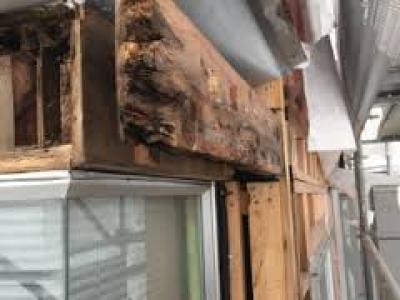Successive governments by trying to appease fashionable activists end up by pleasing nobody
Napier, MSCNewsWire, Wednesday 13 July 2016 - In quite recent times New Zealand governments in seeking to placate powerfully placed, but non-productive, lobby sectors have systematically disrupted and damaged the entire house building sector, one of the nation’s core industries. Below are listed the main appeasement policies with, in bold type, the lobby and activist category that caused them to happen, and the result of each of these as they made their impact on house building. The lesson is how a bedrock national industry has become so vulnerable to passing socio-political drifts and the way in which these overrode technical imperatives.
GREENS Emerging from the old Values Party, the Green Party with its instant access to the media starts flexing its power and campaigns against what it sees as enviro- unfriendly building timber treatment processes. Policy shift: Ban on un-treated timber in house construction is lifted. Result: Very soon after this new application of un-treated timber residential developments across the nation take on the appearance of giant fungus houses. This is because the fast-growing introduced softwoods species used in New Zealand construction and now minus their customary protective vacuum-infused insecticides and fungicides now become filled with insects and funguses.PROGRESSIVES A fashionable coalition of pressure groups, some professional, now call for a relaxation on the nation’s sternly enforced building structural codes which it claims give insufficient scope for modernist construction expression. Policy shift: Building industry codes relaxed to accommodate use of monolithic cladding and chemical resin adhesives and fillers. Result: Structures especially of the multiple town house type are not weather proof and this problem is compounded by the presence of the untreated framing timber.FREE MARKETEERS The move to contract-out local government “non-core” services accelerates. These are deemed to include the once-rigorous local government building inspectorates. Policy shift: Many of those employed post policy shift in the new external farmed-out inspectorate organisations are not in fact qualified for the work that has been contracted out to them. Result: They fail to identify the consequences of the use of untreated softwoods and also the application of the monolithic man-made cladding. By the time these independent inspectorate organisations are eventually called to account, most of them have dissolved in the same manner as the structures they were supposed to supervise.UNIVERSITIES The National government, always prone to the lure of the groves of academe now concurs with a university-originated policy to give priority to an academic-based professional veneer to training and instruction in construction. Policy shift: This is to take the place of the traditional applied craft apprenticeships. Universities now shoulder aside the apprenticeship system replacing it with their preferred lecture-hall technique . Result: At the time of a major wave of new construction demand nationwide the building industry has insufficient practically qualified craftsmen to meet it.COMMENTARIAT The National government severely rattled by highly publicised injuries sustained by forestry workers needs to be seen to be doing something about it. Each mishap and its aftermath is always outlined in anguished terms and becomes a bulletin staple of the broadcast media and over a long period of time. Policy shift: The government seeks to provide visible proof of its safety-at-work policies and now imposes them on the relatively accident free home construction industry which is already vigorously policed by the now restored and extremely vigilant local government inspectors who are now employed directly by the local government authority. Result: Safety compliances now pushed to an absurd extent mean that small bungalows under construction must be encased in full scaffolding complete with safety nets at all stages. This now adds $10,000 to $15,000 onto the price of each new house.
From the MSCNewsWire reporters' desk

